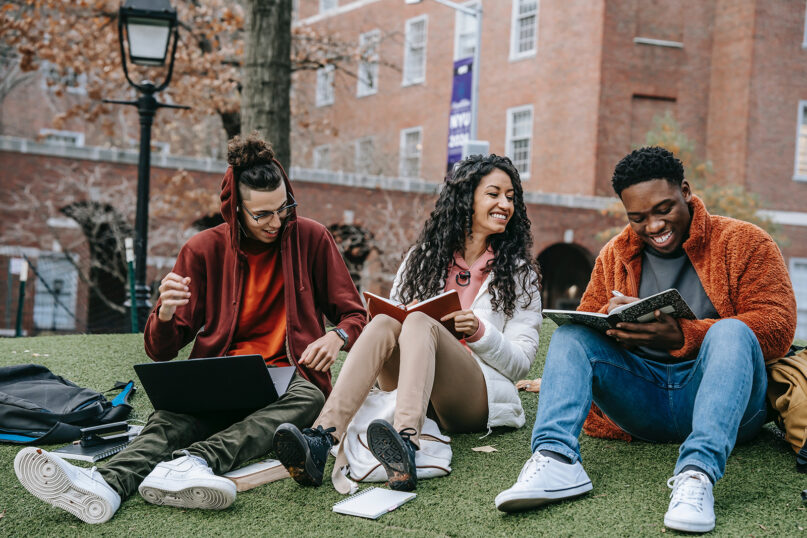(RNS) — With the first 2024 presidential election debates already underway, Muslims are reflecting on the turmoil, controversy and tension that accompanied the last few election cycles. Most notably, in 2016 Donald Trump fanned the flames of Islamophobia in the country, publicly expressing his evident personal hostility toward Muslims during the campaign and making among his first acts as president executive orders banning U.S.-bound travelers entry from several Muslim-majority countries.
In response, many Americans, including those who don’t identify as Muslim, came together to protest bigotry and support the Muslim community. There is no more indicator of the division in this country than the rhetoric about Muslims over the last two decades, especially as it became a function of political loyalties.
As researchers from diverse religious and spiritual backgrounds, we are interested in how education can be used as a platform to moderate the effects of social ills, including racism, sexism and Islamophobia. We try to understand how young people perceive Muslims and how to create opportunities to push back against Islamophobia and other forms of hate. Our most recent study about attitudes toward Muslims brings us hope, especially for educating non-Muslim students about Islamophobia and its overt and insidious expressions.
Over the course of the 2016 election and the Trump administration that followed, we surveyed more than 9,000 non-Muslim students at 122 college and university campuses three times: when they came to college in fall 2015, again at the end of their first year and a third time just before graduation in spring 2019.
Each time, we asked students their thoughts about Muslims and the extent to which they agreed with the following statements: People in this group are ethical people; I have commonalities with people in this group; People in this group have made positive contributions to society; I appreciate people in this group
Their responses showed very clearly that even in the presence of a slew of other influences, such as religion, race, gender, sexuality and, most importantly, political leaning, attitudes toward Muslims among college students became more positive over time. Even the most prejudiced students — those who disagreed that Muslims make positive contributions to society or that they are ethical people — changed their minds.
How? By getting to know each other.
In this research, we specifically differentiated interactions that were informal — as when students studied, dined or socialized together — from those that were formal, when students attend a panel, say, with people from different religions. We found that informal social engagements between Muslims and non-Muslim students are nearly twice as effective at bettering attitudes toward Muslims as formal ones. Importantly, one interaction is not enough. Students need to have consistent interactions with each other in order to become adept at resisting Islamophobia and the biases and stereotypes that underscore it.
This all gives us hope, since campuses are places where students interact in this way, thanks in part to faculty, staff and administrators who work hard to create and sustain a vibrant environment. On the other hand, we get disheartened when people question the value of attending college. Our survey clearly shows that that value goes beyond learning calculus, accounting and chemistry in the classroom. Students need to learn, and do learn on campuses, how to value others in the basic ways that humanize us.
We cannot help but wonder where the 9,000 or so students who participated in our survey would have had the opportunity to challenge their perceptions about Muslims if it weren’t for their time in college. As a society, it seems as though we have forgotten about how powerful a community of young people can be in bettering our world, even when the outside world is buzzing with prejudice and hate.
Perhaps it is pessimistic to think that more Islamophobia is about to tumble down into our communities over the next two years, but we remain hopeful that colleges have the tools and resources best suited to create a better, more just and more accepting world — not only for Muslims but everyone.
(Musbah Shaheen is an assistant professor of higher education at the University of Massachusetts Amherst. Matthew J. Mayhew is the William Ray and Marie Adamson Flesher Professor of Educational Administration at The Ohio State University. Christa E. Winkler is an assistant professor of higher education at Mississippi State University. Alyssa N. Rockenbach is Alumni Distinguished Graduate Professor in the department of educational leadership, policy and human development at North Carolina State University. The views expressed in this commentary do not necessarily reflect those of Religion News Service.)





